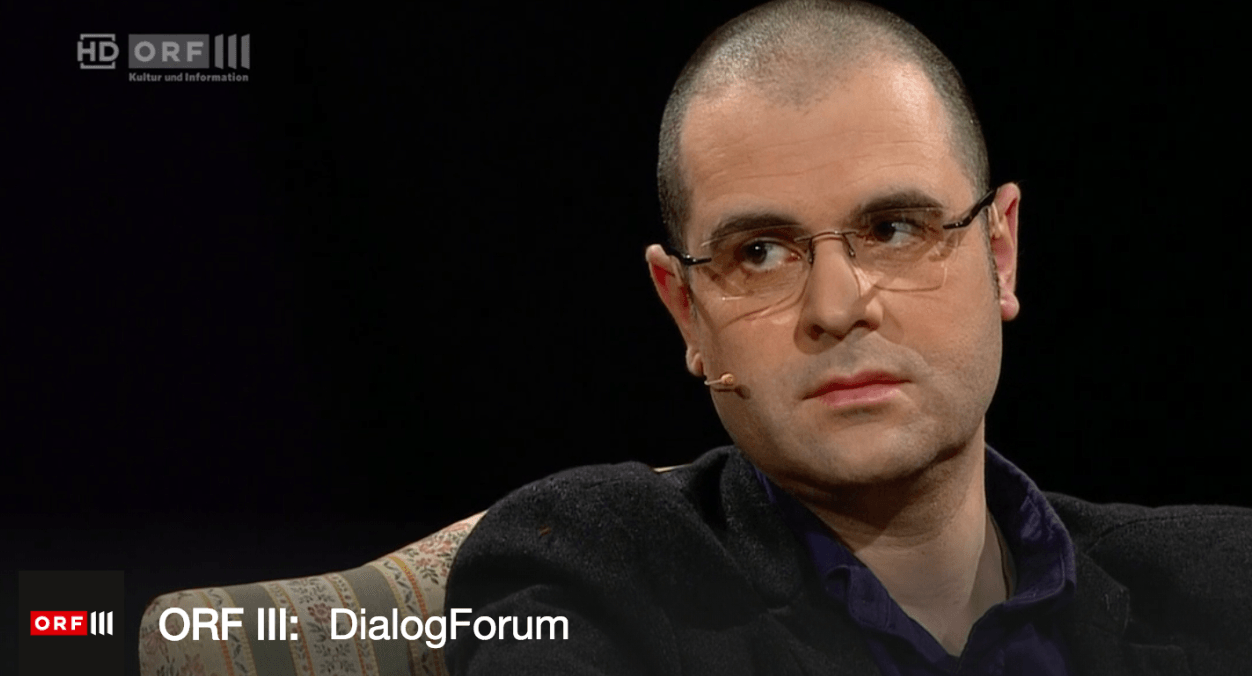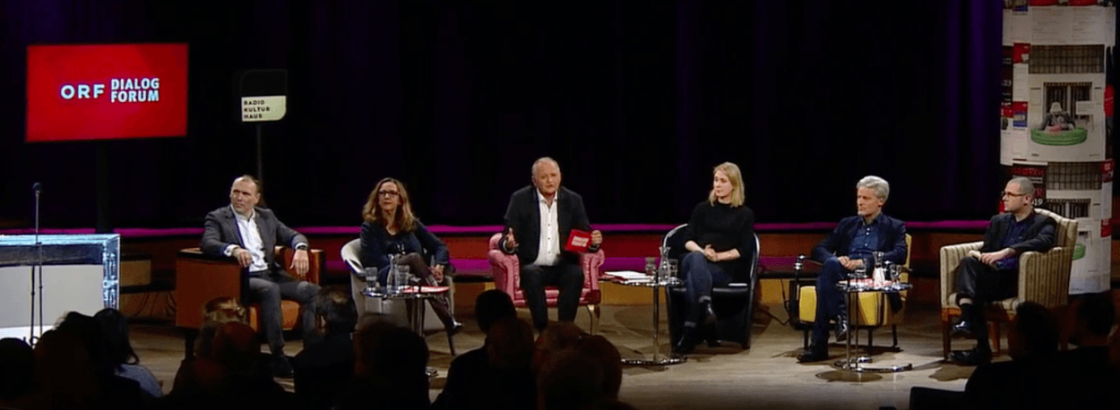The Future of Public Service Broadcasting in the Digital Age: Christian Fuchs Argues for a Public Service Internet in TV Debate.
On January 16, CAMRI co-director Christian Fuchs participated in a panel discussion organised and broadcast by Austria’s public service broadcaster ORF (Austrian Broadcasting Corporation). The event was hosted by ORF’s Public Value Competence Centre and chaired by the latter’s director Klaus Unterberger. The invited panellists discussed the challenges and opportunities that public service media face in the age of the Internet, Google, Facebook, Twitter, fake online news, filter bubbles and political bots. In the discussion, Fuchs drew on his chapter on digital democracy and public service media in ORF’s annual public service study. In 2018, the ORF public service study was dedicated to the theme of democracy.
In his opening words, ORF General Director Alexander Wrabetz stressed the importance of the public service remit to foster education, culture and democracy in the digital age. In the panel debate, ORF journalist Nadja Hahn argued that public service content should have a timely unlimited presence on the Internet. Political critic, writer and satirist Florian Scheuba stressed that lies and fake news presented online are neither opinions nor alternative facts. Julia Rehkopf, who as a journalist works for ARD/ZDF’s Y-Kollektiv that broadcasts via YouTube, foregrounded the importance of the diversity of the media and public opinion in the digital age. Peter Kropsch, CEO of the German Press Agency (DPA), emphasized the importance of media education and the verification of information.
Christian Fuchs argued that digital capitalism poses a threat to democracy. He suggested taxing global digital corporations’ revenue and online advertising revenue at a level of five to eight percent. He said, “The advancement of democracy requires the extension of the public service remit to the digital realm”. For reaching this goal, Fuchs suggested new public service Internet platforms, such as a public service YouTube, the creation of a non-commercial, not-for-profit European-wide public open online space, where public service media cooperate with public service institutions such as museums, libraries, schools, universities etc. and community media.

Fuchs argued for the renewal of ORF’s legendary debate format Club 2 (known as After Dark in Britain) that featured live, uncensored open-ended television debates. Fuchs stressed, “Club 2.0 is Club 2 in the digital age. It should make use of user-generated video content as discussion inputs. Such content could be socially produced in schools, associations, churches, unions, housing estates, local communities, etc. in order to renew political engagement in the age of fake news and high-speed online information”.
Fuchs argued that creating a public service Internet requires legal changes such as the abolition of market tests as part of the public service test, the deletion of legal paragraphs that limit ORF’s provision of Internet services and platforms (§4f of the ORF Act), and the elimination of the timely limited presence of public service content on the Internet (7 days in Austria [ORF], 30 days in the UK [BBC])
The debate was live-streamed over the Internet and later broadcast on ORF (see video).
—
Video:
https://zukunft.orf.at/show_content.php?sid=147&pvi_id=2041&pvi_medientyp=v&oti_tag=Dialogforum
Related news stories about the event: https://orf.at/stories/3108042/
https://www.horizont.at/home/news/detail/digitaler-kapitalismus-als-gefahr-fuer-die-demokratie.html
Images: Christian Fuchs | ORF Screenshots







